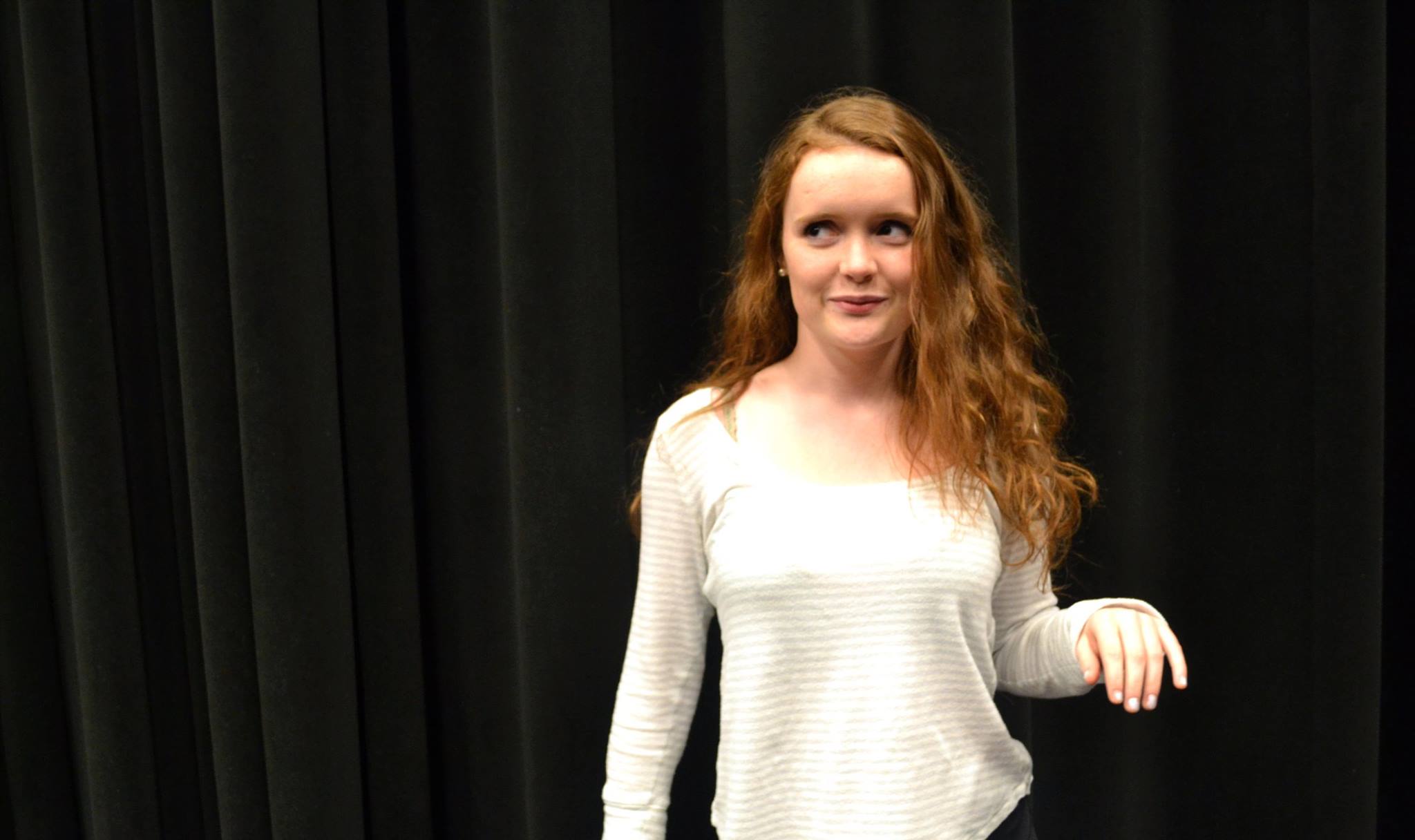Approximately 75% of the United States’ population suffers from a fear of public speaking. Actors and actresses must develop an array of strategies to deal with the anxiety that accompanies public speaking, and even then, facing a crowd with a script to remember and a role to play is no easy task.
When Lizzie Mears ’16 entered the National Shakespeare Competition, she decided to face these obstacles head-on; “I think that in order to grow as an actor or actress, and even just as a person, you have to leave your comfort zone and push yourself despite the newness or difficulty of the situation,” she said.
That initial risk paid off for Mears, as she swept through the school and community rounds of competition and is currently preparing to compete on the national stage come April 27, at Lincoln Center Theatre, New York. Approximately 2000 teachers and 15000 students participate in the National Shakespeare Competition each year, hoping to both develop themselves from an acting standpoint, as well as contend for a number of prizes, most notably a scholarship to the Royal Academy of Dramatic Art’s Young Actors Summer School in London.
The participants must perform a memorized monologue and a sonnet, as well as an additional cold reading element in the finals. The cold read works as follows: each contestants has fifteen minutes to study a Shakespearean monologue before performing it in front of an audience. This final element inflicts a particularly grueling amount of stress on the entrants, as Mears can attest to.; “The hardest thing about this competition is the cold read element… to go and take these risks and follow your gut while reading new text on stage in front of so many Shakespeare-loving strangers is even more nerve wracking.”
Mears attributes much of her success to the guidance and support of Performing Arts teacher Stephen Wrobleski, who recommended that she enter the competition in the first place; “In the first semester of Acting 3, [Wrobleski] teaches a unit on auditioning, culminating in each student’s preparation and performance of two monologues in front of the class, one of which is contemporary and the other, Shakespeare…. After everyone performs, [Wrobleski] watches the videos to select somebody to enter into the first round of the English Speaking Union competition. When he asked me if I would like to do it, I was delighted.”
Making it to the final round demands long amounts of time dedicated to preparation, and that process is no different now then when she first entered. “To prepare, I have been giving myself monologues to study and perform (on camera- brutal but necessary) under time pressure,” Mears said. “ It slowly builds up your familiarity with Shakespearean text and comfort level with making strong character choices, something that the judges look for in a cold read.”
Mears has, in some ways, been preparing for her recent endeavors since she was a little girl. She reflected on her early interest in acting and how it grew over time, saying, “I have always been a theatrical person ever since I was tiny. As I’ve gotten older and had the chance to study acting at school, I’ve loved it more and more, and been able to see its applicability to my life, whether I end up acting or not.”
(Alex Doe ’16, News Editor)

